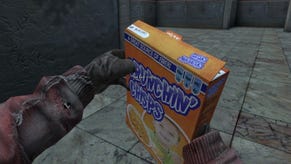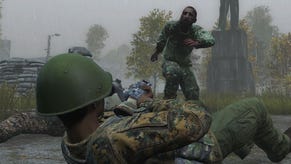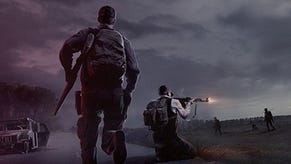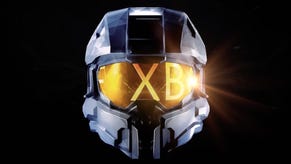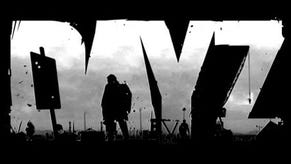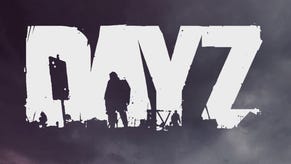DayZ's Dean Hall: Rocket Man Rising
DayZ's creator on the mod's past, present and standalone future.
For over a million people, Dean 'Rocket' Hall, creator of ArmA 2 mod DayZ, is responsible for some of the most emotive stories to come from a game in 2012. But he'd be hard pressed to recount how any of those stories have played out or how their inevitable, often gut-wrenching, ends came to be written.
That's because DayZ's morbid brilliance does not rely on a scripted narrative or staged set pieces. It is instead predicated on the concepts and systems upon which its open-world is built. It's telling that Hall's original technical build, from which the DayZ mod evolved, was intended to provide members of the armed forces with an emotional context for their training exercises, rather than to needle the consciousness of gamers. But, as is often the case, what is shunned by some is wholly embraced by others.
"I was first in the Air Force when I was young, 16 or 17, and it all kind of went over my head really," remembers Hall. "I re-enlisted when I was around 27 and so I had to redo my officer training but this time for the army.
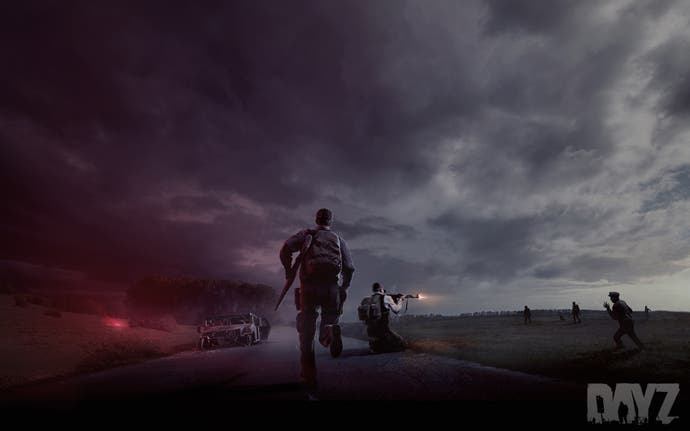
"As I was going through it I felt like I was getting taught stuff but I wasn't getting my mind prepared for what I needed; like I was learning a lot of stuff but not really getting any process knowledge. So, while I was doing my training I started using ArmA to recreate the training area and play out the scenarios that I would be facing.
"I got selected to go over and represent New Zealand in the Singaporean army officer training program and while I was there I did a local training course in Brunei. It was really hard but brilliant, what they did was basically plopped you in the database and..."
At this point, Hall trails off and I'm unsure whether we've lost our audio-only Skype connection, or if perhaps he's sitting glassy-eyed recalling something traumatic. I tentatively ask if he's still there, not wishing to break his train of thought or provoke tortured screams of 'YOU WEREN'T THERE, MAN' but aware that we can only sit in silence for so long (it later comes to light that he's been coding and testing new features for DayZ as we've been speaking).
"Dean?" I gently prompt.
"Uhm, yeah, sorry, did I just say 'plopped you in the database'? My mind's all over the place. They plopped you in the jungle and they basically let you fend for yourself. It was kind of an Amazing Race set in the jungle, so you had to reach a certain number of positions and get a certain number of points in order to get your badge.
"What I really liked about it was the way it was emotionally preparing me. It was hard, and I felt an emotional connection to what I was doing and so I really wanted to experiment with the survival side of that and with tapping into the emotional side of more standard training for soldiers. I came up with the basics of it in an ArmA mod and showed it to a few people; some thought it was amazing and some were just like 'right, OK'. They're not very progressive, I think some people thought it was a bit out there."
I ask Hall whether the fact that he'd created something that was based on a video game was a stumbling block to its success. While simulated training programs are not a new concept in the armed forces or law enforcement, a homebrew software program created by a junior officer may struggle to catch the imagination of the top brass of a military organisation.
"I think that the fact that it was based on a videogame was a stumbling block to some people, yeah. I think actually the stumbling block was the idea of change; if I've learned anything it's that people don't really like change, especially if it threatens the way that they've done things before, so they only really want to adopt tools and systems and training aids that reinforce the way they've always done things. A little bit of it also came from me being second lieutenant and I guess if you're a colonel then you're thinking that if this guy is really so good then he would be off with some videogame company making lots of money, so there was probably an element of that.
"A lot of people were genuinely interested in it but realised that the military and government take so long to implement things, unless they're forced to be they're not really innovators. So, I moved on. It was around December, I had a lot of the elements in place and had been working mainly on persistence up to that point, but after that I wanted to make something a little more mainstream and I realised I needed a protagonist. Plus, I really wanted to do something with zombies."
As does the entire video game industry, it seems. The insidious creep of the zombie horde has reached out rotting hands to clutch at every corner of the industry, from the smallest of twin-stick shooters to an expansion for Red Dead Redemption through to a prominent mode in the industry's biggest franchise. It seems zombies capture the imagination in a way that other staple figures of horror can only dream of in their sweetest nightmares.
While we're talking, Hall references Robert Kirkman's The Walking Dead, a trans-media zombie success story that has been lauded for the way that, like all the best zombie fiction, it focuses on survival and the human element of the fantastical setting of a zombie apocalypse.
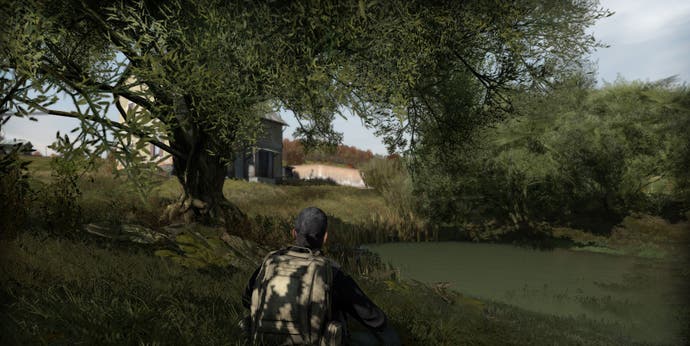
DayZ achieves this by forcing the player to acknowledge basic human needs like thirst, hunger and shelter; elements that force the player to focus on immediate goals before they can consider longer term strategies. Hall was able to marry the key elements of survival that featured in his original army project with his desire to incorporate the undead, and it happened relatively quickly once he'd made some key decisions and spent two prolonged periods with a lot of time on his hands.
"I did a lot of my initial thinking for DayZ during my last little stint with the army, which was babysitting the Singaporeans when they came to do an exercise in New Zealand over Christmas. It was in the middle of nowhere, in a place called Waiouru, and so I had a lot of time to myself at night and that was when I started thinking about what of the things of my own experience would make good tensions, just very basic tensions. Then from January to April I was in the Czech Republic working with [Bohemia Interactive] on a contract basis for ArmA 3, and that's when I actually sat down to code DayZ.
"I guess it was the perfect storm of things: I had this technology that I'd developed for persistence and to interface with ArmA that had been in the works over the last two years, then there was being faced with two long periods of time where I was based in a place where I didn't have any friends and in one case where I didn't understand the language. That left me with long periods of blocked-out time."
This perfect storm has come together to form a mod that has attracted over one million players in the four months that it's been available, doubling in number since early July when Hall presented DayZ at Rezzed and boosted shortly after when ArmA 2 featured in the Steam summer sale.
"I came up with the basics of it in an ArmA mod and showed it to a few people; some thought it was amazing and some were just like 'right, OK'. I think some people thought it was a bit out there."
Such immense success has not been without its challenges and frustrations, however: shortly after its April launch Hall was forced to spend more time wrestling server capacity issues and hackers than implementing new features and content. He describes them as dark days that stretched out to weeks on, end afflicted by a shortage of sleep that left him questioning whether the end result - a mod that he was making available for free - was actually worth the work he was putting in.
"Early on in the development I would try to rage quit it, to actually rage quit the entire development, and I'd be like 'well, I'm going to go out with my friends' or 'I'm going to sleep' but 10 minutes later I'd be out on my run and I'd be thinking that, actually, I could solve that problem with this solution or whatever. In some ways it's been almost the same kind of love/hate relationship developing it as it has been for those playing it."
The love/hate relationship will be familiar to those that have spent any length of time with DayZ. It's a product of the conflicting feelings borne of impeccable design tenets mixed with unintentionally hilarious or frustrating execution - and that's simply an unavoidable result of a well-designed alpha-stage mod becoming so popular, so quickly. The end result is that for every epic tale of survival in the wilderness of Chernarus there's an instance of when opening a door broke someone's leg and for every stranger that wordlessly shares a tin of beans or can of soda with a fellow survivor there's the hackers that ride around in a helicopter kill-scripting everyone.
Then there are bandits.
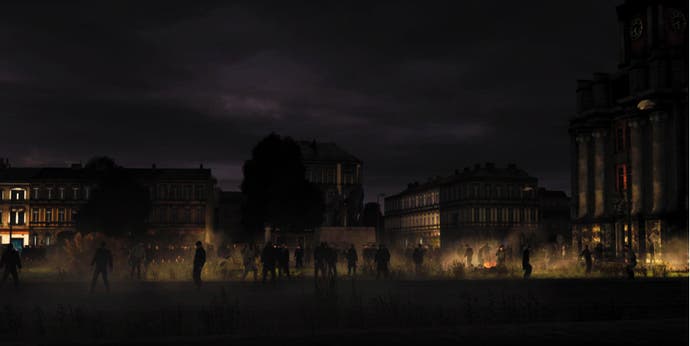
Bandits, combined with character persistence and perma-death, are simultaneously the best and worst thing about DayZ. Essentially, bandits are just other players who have adopted a murderous approach to post-zompocalypse survival. They are the reason that heading into cities is fraught with danger; why in the relative safety of a forest or countryside you run in zig-zags for fear of being sniped and, the real kicker, why the undead provide just the backdrop for drama, while fellow humans provide the real emotional trauma.
Bandits are also the reason for my conversation with Hall becoming sidetracked as I begin an impassioned recounting of my own first experience of DayZ's biggest threat: sat at the edge of an airfield peering into the mist through binoculars I witnessed a throng of 20 or 30 people running aimlessly this way and that, firing weapons into the empty sky while others tore around in patched-up vehicles.
It was fascinating and it was chilling, and it felt like I was watching the end of the world. I knew with a genuine, instinctive certainty that if I approached this group I would be shot on sight: no discussion, no negotiation, no questions asked. So I turned and I fled. I wanted to put as much distance between myself and the feral group as I could, but in doing so I got careless. I failed to notice the watchtowers around the perimeter of the airfield. In running bolt upright and in a straight line I presented the perfect target for a sniper who suffered no compunction when shooting my fleeing female avatar in the back of the head.
I tell Hall how in that instant over a week's survival was cut down by a bandit who likely had nothing to gain from looting my modestly equipped corpse, and of how I sat aghast staring at the You Are Dead screen. I describe the feeling of disbelief turning to anger at the other player, at the mod for not punishing such behaviour, and at myself for not being more careful. I relate how that anger turned to an afternoon of moping, feeling bereft and not sure whether I could face starting over and rebuilding from scratch but how I eventually did so with a resolution to be more careful and to learn lessons from my folly.
"In a way, DayZ the mod is fundamentally broken. But I guess it's the design core that people identify with and the amazing thing is that in spite of everything else that may be wrong with it, people want that experience that's been designed."
"You realise you've just described the grief process?" Hall asks when I'm done with my story. The notion that those feelings were provoked by a video game makes me smile.
"I look at it this way: one of the things that I really liked about The Walking Dead was when Dale said that civilisation has gone but that doesn't mean that people have to lose their humanity. What I wanted was a game where people who play it in one way and people who play it in another are playing the same game at the same time but it actually works. That's what I wanted to achieve.
"What I find interesting about DayZ is that I'm choosing to live and play this way; I'm not playing this way because it's necessarily the most efficient, I'm playing this way because it's how I want to feel. Not everyone plays the same way, but those that are playing as these evil and sadistic bandits are actually helping my game experience. Now, we don't have the recipe exactly right and if DayZ the mod has taught us anything it's that we need more tools. Those things are coming but they're going to take time."
Fortunately, time is something that Hall has a little more of these days. The fire fighting of DayZ's inception has subsided and the workload of a tumultuous few months has finally started to even out, "like a ship righting itself after being tossed about in the waves," as Hall describes it. Thanks to an army of community members who are managing the servers, Hall is able to concentrate on other, more exciting aspects of development.
"So long as the dialogue between the development team and the community is good, we can actually hand over responsibility for managing things to them. It's no longer the case that I'm doing even the lion's share of the work of managing that. I'm now able to step back a bit and concentrate more on the future, and that future is DayZ the game rather than DayZ the mod."
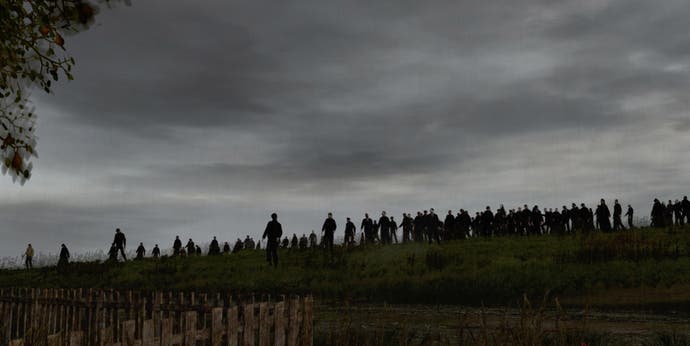
Hall officially became a Bohemia Interactive employee on 1st August and has been charged with leading development of a fully-fledged, standalone DayZ game that he's confident will be out this year, possibly as soon as October. He sees DayZ the mod continuing to run alongside DayZ the game and intends to implement another couple of big updates, but recognises that at some point he'll have to hand over any future development of the mod to the community and is excited by the prospect of passing on the torch to other budding developers. As for DayZ the game, Hall has a clear vision for its structure and the approach it should take.
"The key thing for me and the future of DayZ the game is that early on, I made the decision that it would follow a Minecraft model. I think that for all of the criticism that Notch gets he's really done something quite visionary by saying that he's going to let the users invest in this idea by buying-in early and then not being afraid to experiment with iterative development. So, I would see DayZ releasing at around the 15 EUR mark, which would be much lower than any potential competitor could do it, let alone with the feature set that we're planning."
Hall won't be drawn on a definitive feature list for DayZ's launch, claiming that it would run counter to the organic nature of the DayZ design philosophy, but his primary aim is to ensure stability and stamp out as many bugs as possible. He also intends to do some work on the map of Chernarus before adding additional features, which will be discussed on the game's website over the coming weeks, but that will almost certainly include advanced base building and the introduction of a canine companion.
Unconcerned by potential clones or competitors, Hall points to the "couple of terabits worth of data that nobody else has of one million players" as an ideal resource for finding out what has worked throughout DayZ as well as highlighting the areas that need further experimentation.
While PC is currently the only platform being discussed, he does not rule out a potential spread to console in the future. Ultimately then, Hall and his team are prepared for the inevitable onslaught of copycat zombie survival titles that rise in the wake of DayZ's success, "I don't think that the clones are a bad thing because they will keep DayZ on its toes and drive it to innovate."
Despite its quirks (and as I write this I remember the time hackers turned my avatar into a goat) DayZ has so far captured the imagination of over one million gamers and provided some of the most enduring video game stories of 2012. Those stories are what has helped earn it a GDC nomination for Online Innovation, what has helped it shift more than 700,00 copies of the three-year-old ArmA 2 on which it is built. They're what attracts thousands of new survivors to the shores of Chernarus everyday to try to forge their path through its bleak world.
"In a way, DayZ the mod is fundamentally broken. But I guess it's the design core that people identify with and the amazing thing is that in spite of everything else that may be wrong with it, people want that experience that's been designed. I think it's one of those things that you can't try too hard to achieve. You can't sit down and want too much to make money from it, you have to experiment.
"In fact, I've actively done things during the negotiations that have perhaps screwed me over in terms of what I could have done with it [from a financial perspective] but that's enabling us to follow this design path. I think that's what people have latched onto: seeing past graphical glitches and its problems to get themselves inside the game because instead of being a bunch of mechanics, it's a bunch of feelings."
Those feelings come as a result of every survivor that ever sets foot on Chernarus having choices to make about how they survive its challenges. The choices are neither punished nor rewarded by the game or its systems. Instead they are woven together to form personalities, each one a product of that individual's risks and rewards, decisions and consequences. Hall might be responsible for some of the most emotive stories to come from playing a video game but he isn't remotely interested in telling you how those stories unfold; it's up to you to write your own tale of survival.



